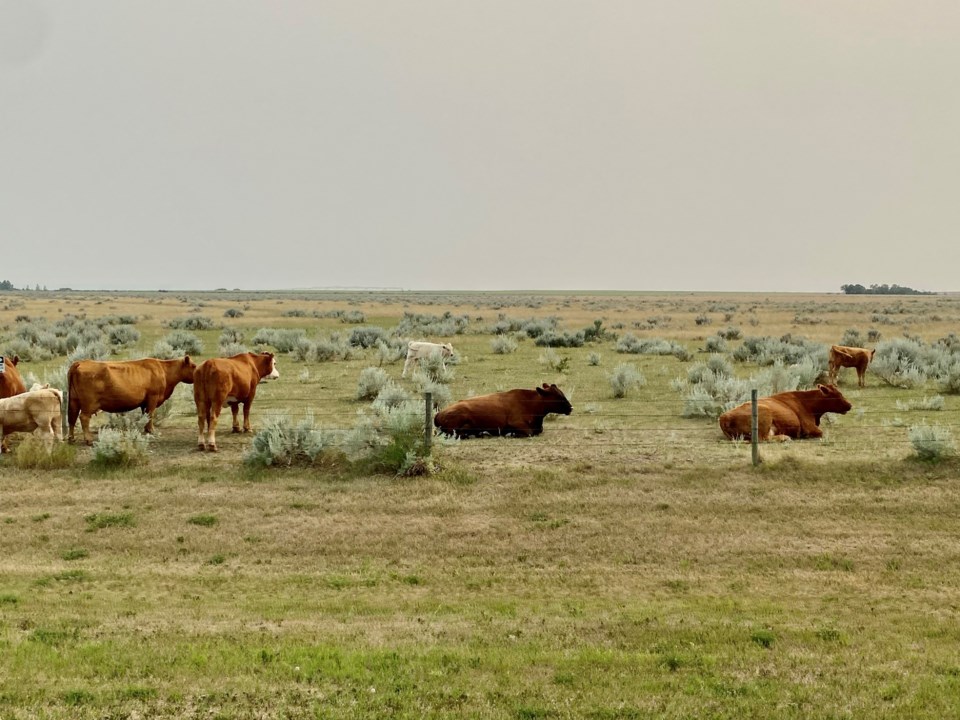Due to current severe drought conditions, livestock producers lack much necessary forage and water for their cattle. Grain producers are also experiencing substantial yield reductions in certain areas.
Emergency disaster relief is required as Saskatchewan farmers face relentless heat and severe lack of rainfall. Producers have turned to selling off cattle with the significant absence of grazeable land and natural water sources.
As of July 14th, Saskatchewan Crop Insurance Corporation (SCIC) is working with producers to address the extreme drought. The SCIC is doubling the Low Yield Appraisal threshold values for grain producers who chose to utilize their damaged crops as feed this year.
This change will make it more accessible for producers to salvage their crops as livestock feed. Producers with crop insurance can now utilize their barley for livestock feed if their yield is 14 bushels per acre or less. This threshold is up from the previous seven-bushel point.
The program will enable members of the livestock and crop sectors to work hand in hand during this challenging season.
"I want to encourage grain producers to work with neighbouring livestock producers to make feed available… and to ensure damaged crops, intended for harvest, can be put to an alternate use," said Saskatchewan Agriculture Minister David Marit.
Customers interested in the program are asked to contact their local SCIC office before deciding to graze, bale, or silage their damaged crops.
Producers who chose to utilize this new option will incur no penalties on crop insurance coverage in the future.
The government has also addressed the dire need for water on ranches. Livestock producers will temporarily have access to the maximum funding from the Farm and Ranch Water Infrastructure program.
Dugouts, wells, and pipelines were previously funded at 50 percent of eligible costs, up to a maximum of $50,000. Retroactive from April 1st 2021, until March 31st 2022, the maximum rebate has increased to $150,000. The initial $50,000 will remain split at 50 per cent with producers, while the additional $100 000 will be covered at 70 per cent by the government.
The Government of Saskatchewan is also hoping to assist producers through the Livestock Tax Deferral program. This would benefit Saskatchewan producers whose herds have been affected by feed or water shortages. According to the Ministry of Agriculture, preliminary designations are normally made in the autumn, but a request has been made of the federal government to speed up the process.
The Canadian Agricultural Partnership agreement will cover the funding of these programs.
While provincial and federal governments continue to monitor the forecasted outcomes of this dire season, producers are encouraged to reach out to the Farm Stress Line for immediate personal support. The confidential Stress line is available 24/7 toll-free at 1-800-667-4442.
EDITOR'S NOTE: A previous version of this story indicated that livestock tax deferrals 'would be available to producers who chose to sell off part of their herd to stay afloat.' The story has been corrected to indicate the provincial government is looking into this possibility. We apologize for the error.




